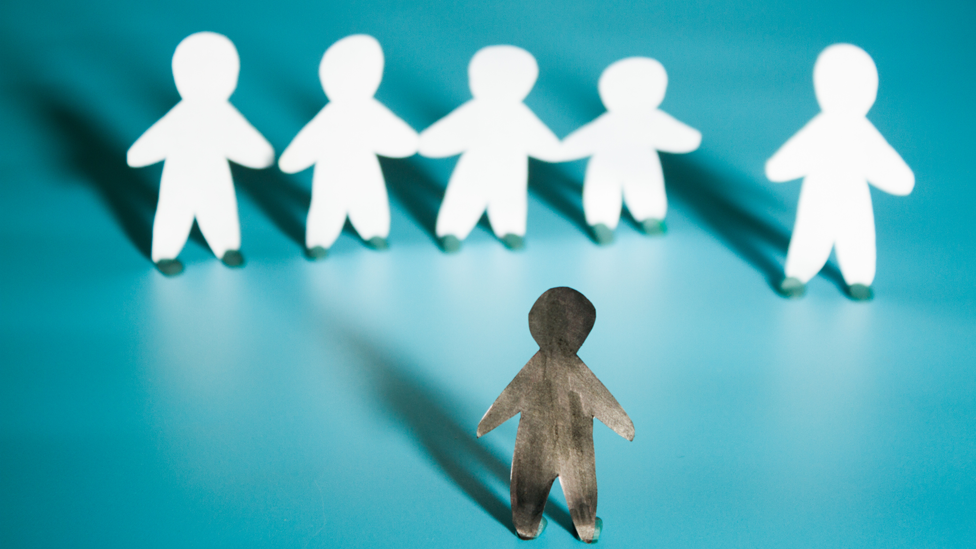Racism: Bethesda family suffer microaggressions and jokes
- Published
Lamin Touray and his wife are raising three children in Wales, including nine-week-old Aminata.
A mixed race family has described suffering casual, racist comments towards them, saying a small minority "still live in the '50s".
These have been in the form of jokes and being socially excluded.
Medwen Edwards, 43, lives in Bethesda, Gwynedd, with partner Lamin Touray, 39, who is originally from The Gambia.
Microaggressions are "everyday slights, indignities, put downs and insults" people suffer in their day-to-day life, Race Alliance Wales said.
Medwen, a mother of nine, has three children with Lamin - Leo, three, Koby, two, and nine-week-old Aminata.
"I'm very lucky to have him in my life, and the children are too. He is so kind and loving towards us all," she told the Newyddion S4C programme, external.
Having grown up in the Ogwen Valley, Medwen explained racism was a rare occurrence on the whole, but her family had experienced microaggressions several times.
"I still get comments now, it's like some people still live in the '50s," Medwen said.
"We only get a few slight remarks. Comments and things like that, but otherwise everyone here is lovely with him."
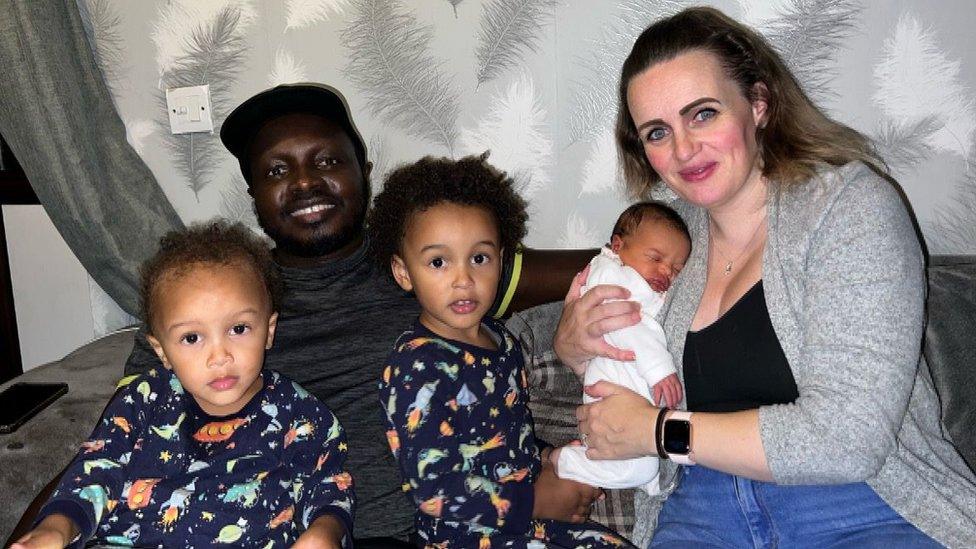
The family receive many comments around the area
She met her partner at the gym in 2017 after the data analyst moved to study computer science at Bangor University.
She believes saying you are anti-racist is not enough, adding: "It's easy enough to say you are, but it's usually a different story when it's time to show it, isn't it?"
Among the comments include people saying they cannot be a "proper family" because she has white and mixed raced children.
"Your children can't love each other because they are a different colour to each other," has been another comment.
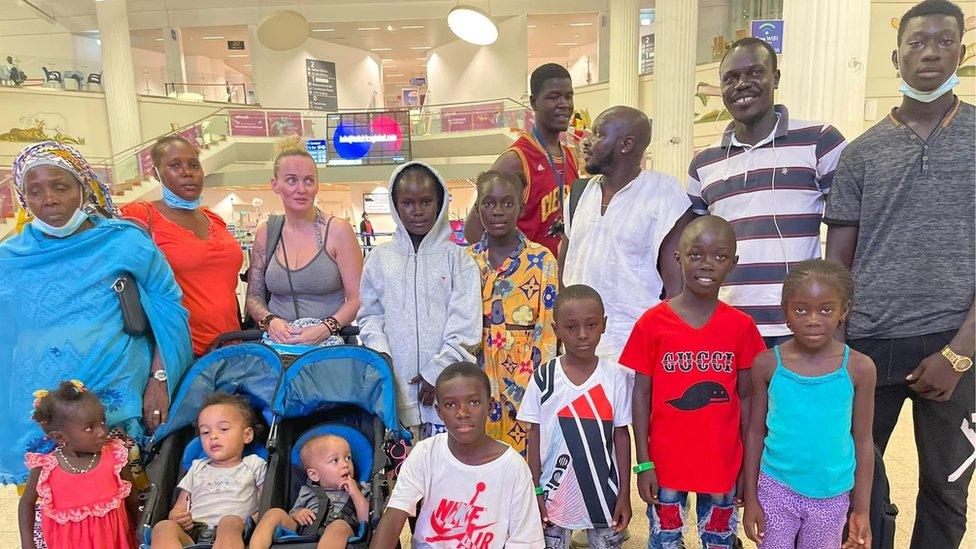
Medwen travelled to The Gambia to meet Lamin's family
Medwen has also been asked: "Why do you want to date a black man? For what? He's an illegal immigrant."
Even though Lamin does not speak Welsh, she said he understood enough of the language to know what is meant.
Medwen believes people say these things because they are "not used to black people".
"In Bethesda not everyone is used to black people and because of this, sometimes they can be quite narrow-minded," she said.
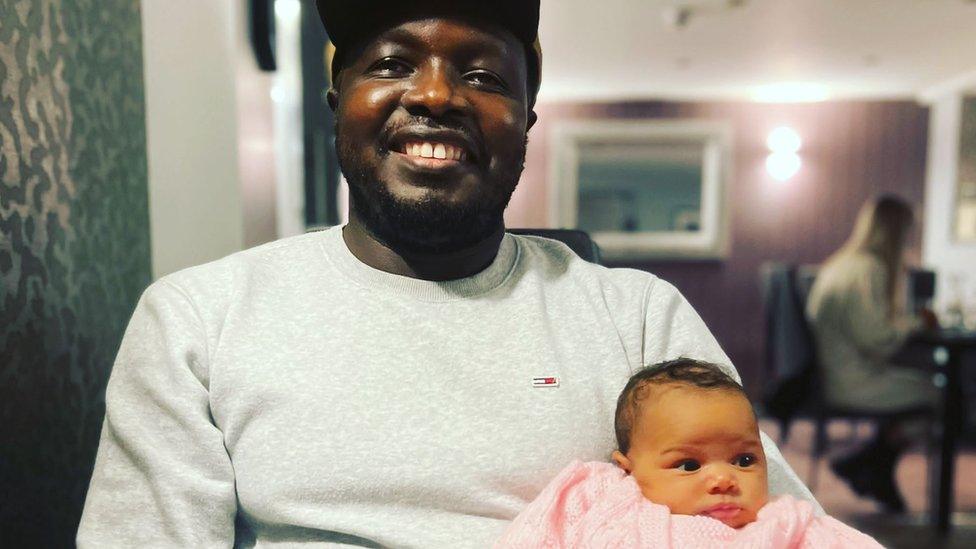
For Lamin, his first experiences of racism in Wales were on the football pitches around Bangor.
"There were times I used to feel like it was too tough because you go and play in some places and because I was different, they started to make monkey noises," he said.
"But the way I see it, the noises were made in the heat of the moment. That's life sometimes."
He said the atmosphere after the game was different.
"We'd go to the pub and the same people who made these noises on the field came to shake my hand - it was over," said Lamin.
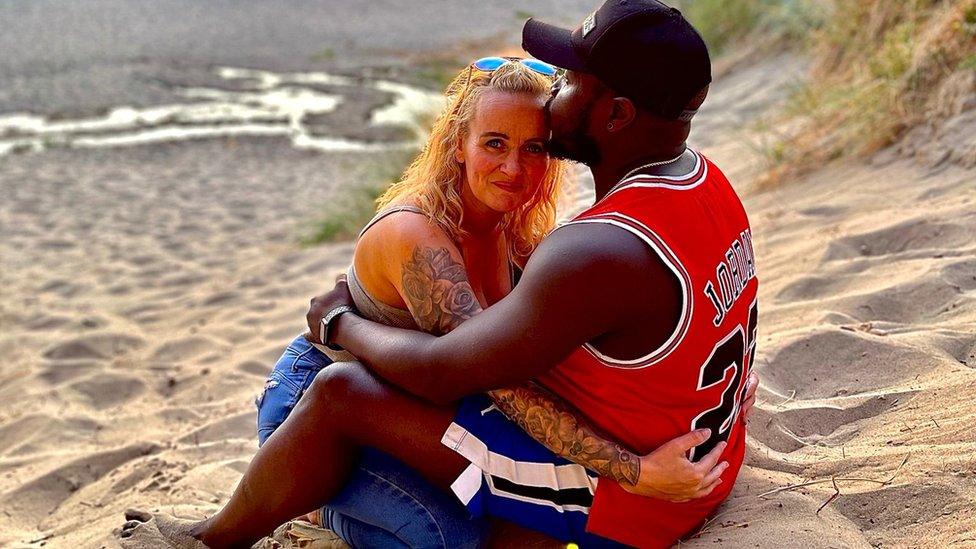
The couple believe everyone should call out any forms of racism
While studying, Lamin also worked as a security guard in a busy nightclub in the city.
He recalled one evening some men being racist towards him, adding: "All of a sudden, one was saying 'go back to your country'. Then they went on to say N-words."
He has not experienced racism recently, but tries not to dwell on incidents, saying: "I will feel racially abused if I accept it, but if I don't accept it, it's nothing to me."
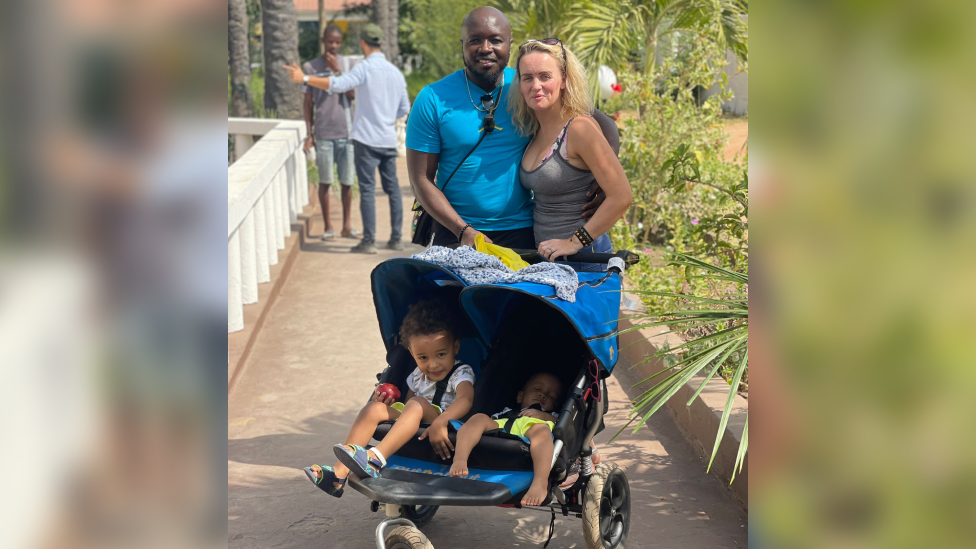
Lamin now works for the Betsi Cadwaldr health board
Medwen and Lamin decided to share their experiences after their friend Ebehitale Igene was racially abused and assaulted in a nightclub in Bangor.
Medwen says that racism exists in all languages, adding: "I think if a person is going to be racist, then they will be racist, if they speak Welsh, English or any other language."
Since the racist abuse at the Cube night club, Ebehitale has been suffering from depression and anxiety, and Medwen urged people to consider the feelings of others before making nasty comments.
"It makes them feel like they are worthless. They get so low in themselves, then they are depressed. And it's not fair at all, just because of the colour of their skin," Medwen added.
"I want to see tougher sentences so that people have to serve a certain amount of time in prison, and raise the price of the punishment as compensation for victims. We need to show that it's not acceptable."
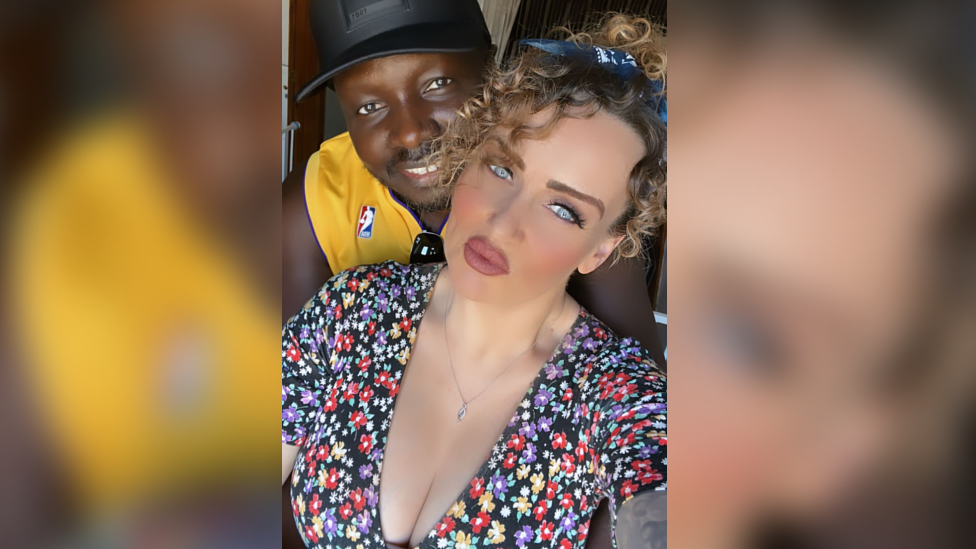
The couple urged people to consider the impact of their comments
Medwen's daughter Tiah, 17, said young people could also be racist, and the problem was not limited to older generations: "It's boys, usually, they say things and don't think about what they are saying.
"They say racist comments and jokes and banter, thinking they are funny, but I don't see the funny side, and I tell them straight."
The Welsh government published the Wales Anti-Racist Action Plan, external which includes measures to tackle racism in schools and communities.
It is part of a plan to make Wales an anti-racist nation by 2030.
If you or someone you know has been affected by the issues raised in this story, information on available help and support can be accessed via BBC Action Line.
Related topics
- Published6 November 2022
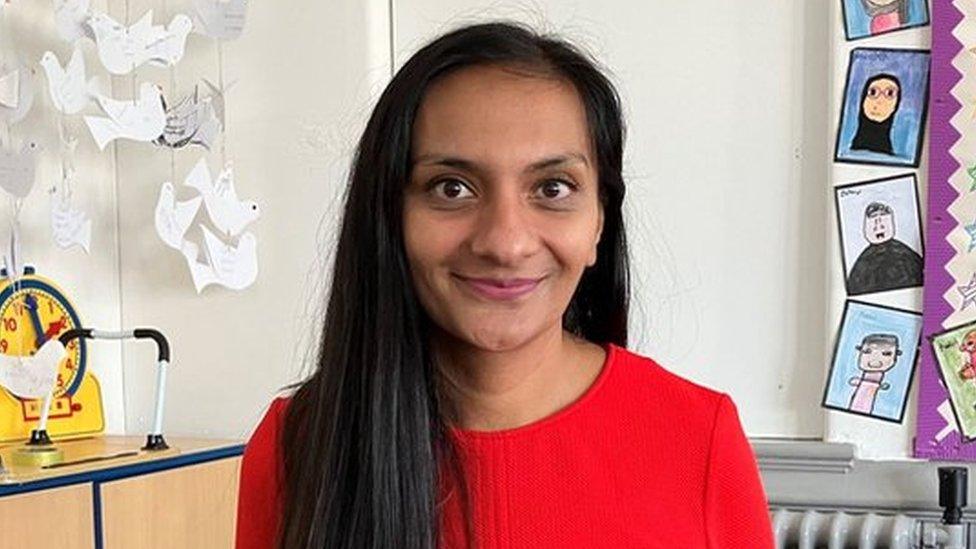
- Published26 July 2022
